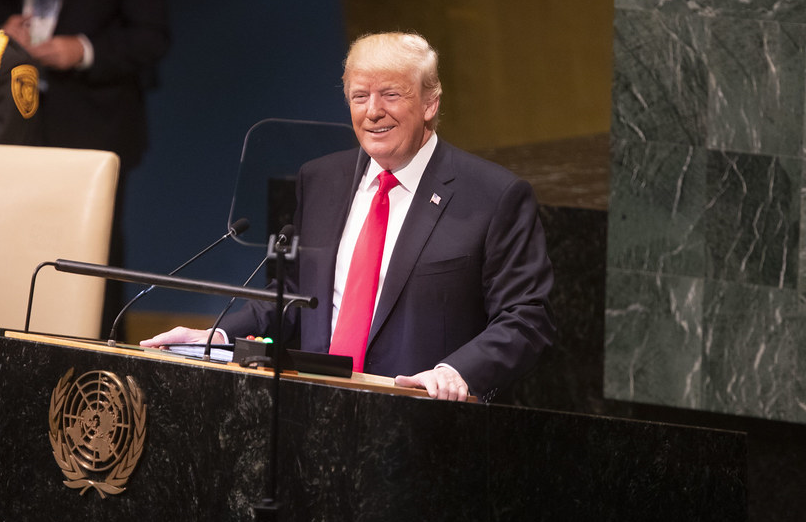Two of the most strategically important U.S. diplomatic posts remain unfilled: the U.S. Ambassador to the United Nations and the U.S. Permanent Representative to the Organization of American States (OAS). Leaving these positions without confirmed leadership at this moment is more than an administrative gap; it is a strategic disadvantage that puts the pro-life cause in the Americas at real risk.
When Linda Thomas-Greenfield’s term as U.S. Ambassador to the UN ended in January 2025, President Donald Trump nominated former Congressman and National Security Advisor Michael G. Waltz to take her place. Waltz, a combat veteran and proven advocate for principled American leadership, still awaits Senate confirmation. Until then, Dorothy C. Shea, an experienced career diplomat, holds the post in an acting capacity. While Shea brings professionalism and stability, acting roles lack the full authority and political backing necessary to command the UN stage, especially when confronting entrenched pro-abortion forces that operate with coordinated precision.
Click Like if you are pro-life to like the LifeNews Facebook page!
And on August 9th, 2025, President Trump nominated Tammy Bruce as Deputy U.S. Representative to the United Nations, a role that would allow her to serve as ambassador when needed if confirmed. While we welcome the president’s choice, the UN post remains vacant as the Senate’s slow confirmation process delays America’s full pro-life voice on the world stage.
At the OAS, the situation mirrors the urgency. Kimberly J. Penland has served as Interim U.S. Representative since July 2025, while the nomination of Leandro Rizzuto Jr. awaits Senate confirmation. In March 2025, the OAS elected Albert Ramdin of Suriname as its new Secretary-General. Ramdin made his position on abortion unmistakably clear, telling delegates he believes abortion is a “personal matter” and has signaled that he is not opposed to “liberalizing” abortion laws in the region. That statement signals more than personal opinion—it telegraphs a willingness to let the OAS become a platform for dismantling pro-life protections in member states across the hemisphere.
The timing of this leadership vacuum could not be worse. Later this year, Punta Cana in the Dominican Republic will host the Summit of the Americas, the hemisphere’s most significant political gathering. Heads of state, foreign ministers, and top policy officials from all OAS member nations will gather to set priorities on trade, security, governance, and—most importantly for the pro-life cause—human rights. In recent years, “human rights” has been redefined and weaponized in OAS documents and resolutions to mean “abortion rights,” which erodes the sovereignty of nations that uphold life from conception.
The Summit of the Americas is not a ceremonial event; it is a decision-making arena where alliances are forged, declarations are drafted, and consensus is built on issues that shape national policies for years. If the U.S. enters that arena without a confirmed pro-life ambassador. We forfeit critical opportunities to push back against the linguistic engineering and political maneuvering that have smuggled abortion advocacy into the OAS agenda.
Pro-life representation at the OAS is not just symbolic; it is operationally essential. Only a confirmed U.S. ambassador can speak with the weight of the administration, negotiate from a position of recognized authority, and rally like-minded nations to defend life in the face of coordinated pressure from well-funded pro-abortion blocs. Without that leadership, the pro-life movement risks watching the Summit produce outcomes that embolden abortion advocates, weaken protections for the unborn, and pressure sovereign nations to abandon deeply held moral convictions.
The UN and the OAS are both arenas where policy battles have shifted from national legislatures to international negotiating tables. In both, pro-abortion actors have learned to operate effectively by embedding their agenda in resolutions, treaties, and “interpretative guidance” that later gets cited and promulgated as binding precedent. If America’s pro-life movement fails to meet them there with equal skill, the fight for life will be lost long before it reaches the ballot box at home.
LifeNews.com Note: Raimundo Rojas is the Outreach Director for the National Right to Life Committee. He is a former president of Florida Right to Life and has presented the pro-life message to millions in Spanish-language media outlets. He represents NRLC at the United Nations as an NGO. Rojas was born in Santiago de las Vegas, Havana, Cuba and he and his family escaped to the United States in 1968.
The post Senate Needs to Confirm Trump’s UN Ambassador to Advance Pro-Life Agenda appeared first on LifeNews.com.
Click this link for the original source of this article.
Author: Raimundo Rojas
This content is courtesy of, and owned and copyrighted by, https://www.lifenews.com and its author. This content is made available by use of the public RSS feed offered by the host site and is used for educational purposes only. If you are the author or represent the host site and would like this content removed now and in the future, please contact USSANews.com using the email address in the Contact page found in the website menu.








